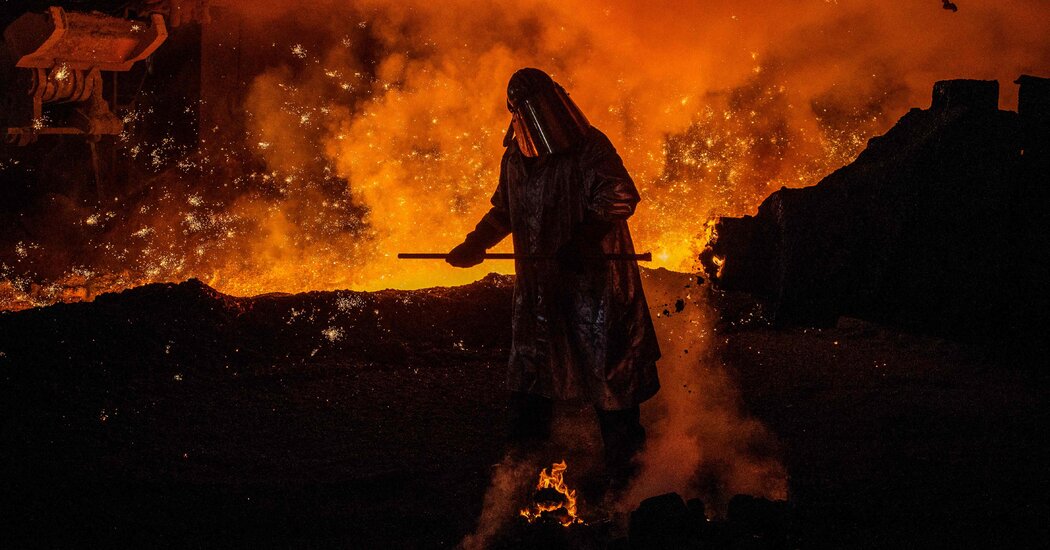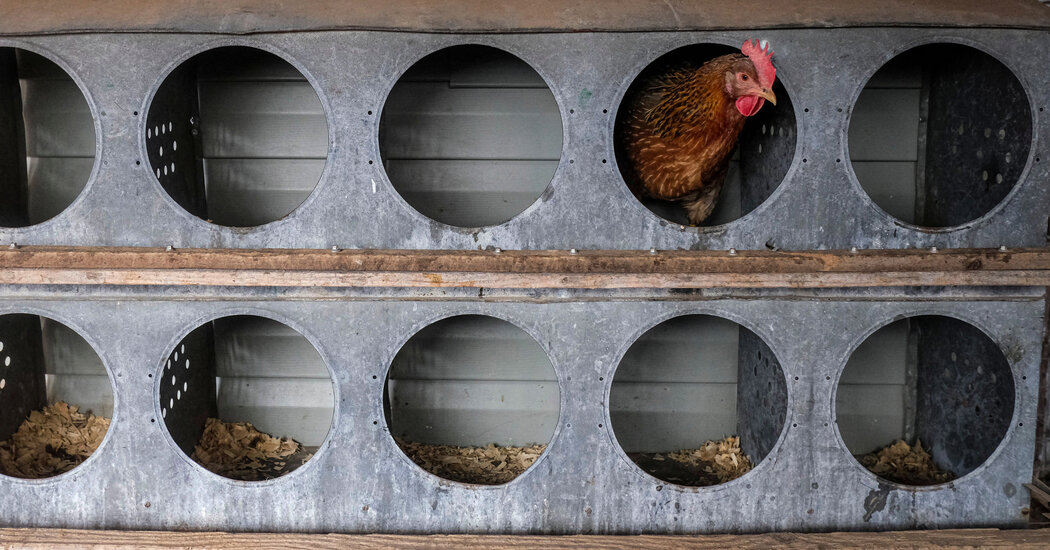The British government and Tata Steel on Friday announced a 1.25-billion-pound package, or about $1.6 billion, to cut emissions and financial losses at Tata’s steel mill — the country’s largest — at Port Talbot in Wales, potentially putting many of the plant’s 4,000 jobs at risk.
The government said the package would help clean up a site that it said was Britain’s largest emitter, reducing the country’s overall carbon emissions by 1.5 percent, and would ultimately preserve thousands of jobs. It will provide £500 million, with Tata contributing £750 million.
Kemi Badenoch, the business and trade secretary, said the deal was “expected to save thousands of jobs in the long term.” But the government’s statement refers to safeguarding only 5,000 jobs in Britain; Tata Steel employs more than 8,000 people, about half of them at Port Talbot.
A union that represents the bulk of steel production workers in Britain said the arrangement risked falling short of the stated goals. While Tata says the plan would “preserve significant employment,” it is not guaranteeing jobs and has been losing money on its British operations for years.
“This deal will have devastating consequences for jobs and workers,” the Community Union said in a statement on Friday. “It will rip the heart out of the Port Talbot community.”
Tata said it would soon begin talks with the unions, including on a “potential deep restructuring” at Port Talbot.
Tata and the government proposed to replace the giant blast furnaces at Port Talbot, which use coal to extract iron from ore, with an electric furnace that melts scrap metal to make steel, a less polluting process. The government said the plant was nearing the end of its life.
But the new plant, which may require years to build, may not produce as much steel as the old facilities or employ as many people.
Steel-making units like blast furnaces and coke ovens would close, the union said, and an electric furnace is not likely to produce the same quality steel as a blast furnace, leading to job cuts at related plants.
“We believe that with electric arc furnaces, there is no way they can keep the portfolio they have got,” said Alun Davies, a union official. “It is concerning.”
Operations would be subject to the availability and price of electricity, which tends to be expensive in Britain, and to the fluctuations of the scrap metal market. The union said the steel produced by an electric furnace would not be suitable for some auto components and food and beverage containers, potentially leading to the closure of the plants that produce steel for those products and putting hundreds of jobs at risk.
Tata has been running large losses at its British operations and looking at solutions including mergers and, potentially, plant closings for years. In a recent filing, the company said the British steel unit lost £279 million in the latest financial year.
“It has been an absolute pleasure to work with” the British government, said Natarajan Chandrasekaran, the chairman of Tata Group, the parent company, in a statement.
The announcement is the latest example of the British government’s being lobbied to put up substantial sums to preserve local jobs. On Monday, the government said it would provide support to help BMW produce electric versions of the popular Mini cars in Britain.
The government also agreed this year to provide an undisclosed amount of aid to encourage the Tata Group to invest £4 billion in a factory that would produce batteries likely to be used in electric vehicles made in Britain by Jaguar Land Rover, which the Indian conglomerate owns.











